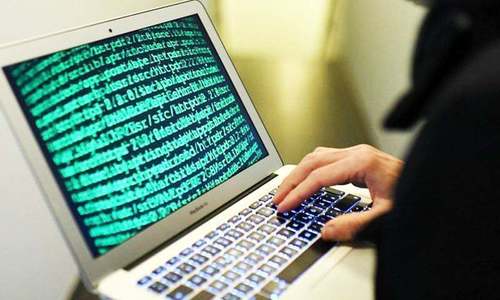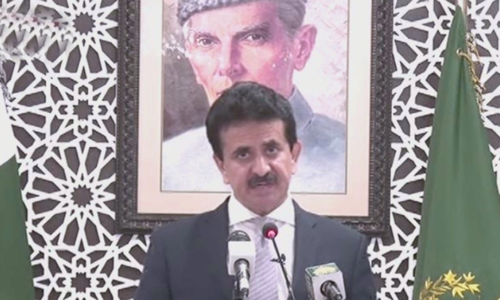Questions raised in European Parliament about Indian govt’s links to disinformation campaign

The European Parliament (EP) this week held hearings on the possible threats of interference from third countries in a geopolitical context, and raised the question of whether the Indian government was linked to the massive disinformation campaign uncovered by EU Disinfolab last year.
The hearings were part of the EP’s Special Committee on Foreign Interference which discussed the issue virtually with experts from China, Iran, India, Saudi Arabia and the UAE. The discussion was chaired by Member of European Parliament (MEP) Raphaël Glucksmann.
Last year, a European group EU Disinfolab through an investigation titled Indian Chronicles exposed an Indian network that systematically worked to reinforce pro-Indian and anti-Pakistan and anti-Chinese feelings in Europe.
One member of the committee, V Bilcik, highlighted that disinformation is an important political issue and that the EU “shouldn’t shy away from it” at the India-EU summit coming up in May this year.
“I have questions about how much these attempts are linked to state sponsorship,” he asked the experts, which included members of the EU Disinfo team that lead the investigation.
“Do we have in-depth data on this? Some may not be under direct control [of the Indian government] but perhaps there are some links? Is it possible that this network operated independent of the state?”
He also asked if there is “any evidence that India could go beyond” toundermine democratic processes.
Member E Jamet, another MP, took exception to the topic being discussed.
She questioned who financed the EU Disinfolab inquiry. “I find it difficult to understand why we needed this committee on interference. State services have this task. I am surprised India is on the agenda - the truth is that this inquiry is levying criticism at India because it is a shame India is a strategic partner for France and the biggest democracy in the world,” she said.
Mr Glucksmann responded by saying, “We are talking about very real things.
Here we are absolutely not talking about issuing any geopolitical judgement on countries we study. We are just trying to find out how we can fight attemptsat interference in debates in Europe.”
Executive Director EU DisinfoLab Alexandre Alaphilippe said it is difficult to formally identify the person or a state behind this. “Indian Chronicles is an operation ongoing for 15 years. It pushed things in the interest of India. This is not something someone dreams up in a back bedroom. It requires a lot of coordination and a lot of means. There are certain coincidences we are seeing, clear will to act and be resilient, strong will and a lot of support behind it.” Roman Adamczyk who is part of the EU Disinfolab research team, maintained that his group’s investigation focused on tactics deployed by some actors to influence the EU and UN and is in no way a judgement f the situation of human rights and minorities in Pakistan nor of the geopolitical tensions between India and Pakistan Mr Adamczyk outlined that the study ‘Indian Chronicles’ took place over several months by the whole team.
“When you try to disable misinformation networks, targets are not always clear. Im Indian Chronicles our dossier doesn’t look at networks in the Indian state but more private actors in India.”
He added that the study is focused on misinformation and manipulation and the use of false media outlets to influence Brussels political ecosystem to shape the narrative in favour of India.
Published in Dawn, January 27th, 2021














































